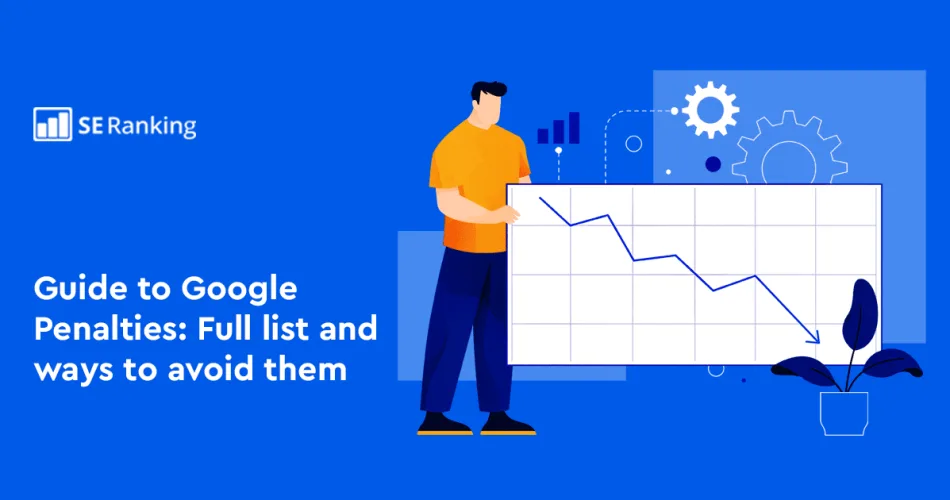Understanding Google Penalties and Their Impact on SEO
Google penalties are a nightmare for any website owner or SEO professional. These penalties can drastically decrease your website’s visibility in search engine results and hurt your overall SEO efforts. Understanding what causes these penalties and how to avoid them is crucial for maintaining a strong online presence.

Common SEO Pitfalls: What to Avoid and Why
When it comes to SEO, it’s all too easy to fall into common pitfalls that can lead to Google penalties. One of the biggest mistakes is using black hat SEO techniques, which go against Google’s guidelines. Other pitfalls include keyword stuffing, low-quality content, and poor user experience. By being aware of these pitfalls and taking the necessary precautions, you can avoid Google penalties and keep your website in good standing.
Quality Content: The Key to Avoiding Google Penalties
Quality content is the backbone of any successful SEO strategy. Google values websites that provide valuable, original, and relevant content to users. By focusing on creating high-quality content that meets these criteria, you can avoid Google penalties and improve your website’s visibility in search engine rankings.
Backlink Building: Tips to Stay on the Right Track
Backlink building is an essential aspect of SEO, but it must be done cautiously to avoid penalties. Google penalizes websites that engage in manipulative or spammy link-building practices, such as buying links or participating in link farms. Instead, focus on building high-quality and relevant backlinks from reputable sources to maintain a positive SEO profile.
Keyword Stuffing: Why it’s a Big No-No in SEO
Keyword stuffing, the practice of excessively using keywords in a webpage’s content, is a surefire way to attract Google penalties. While keywords are important for SEO, overusing them can make your content appear spammy and unnatural. It’s best to use keywords strategically and naturally throughout your content to avoid penalties and maintain a good SEO standing.
Link Building Practices: Do’s and Don’ts for Better Rankings
Link building is an essential aspect of SEO, but it’s essential to follow best practices to avoid penalties. Do focus on earning high-quality and relevant backlinks from authoritative websites. Don’t engage in manipulative practices like link buying or excessive reciprocal linking. By following these do’s and don’ts, you can improve your website’s rankings without the risk of penalties.
INTRO: Duplicate Content: How to Steer Clear of Google’s Wrath
Duplicate content refers to identical or very similar content appearing on multiple web pages. Google penalizes websites that have duplicate content as it can lead to poor user experience and confusion. To avoid penalties, ensure your content is original, unique, and adds value to users. Use canonical tags and 301 redirects to indicate the primary source of content and consolidate duplicate pages.
User Experience and Mobile Optimization: Essential Factors in SEO
User experience and mobile optimization play a significant role in SEO. Google prioritizes websites that provide a seamless user experience and are mobile-friendly. Ensure your website is easy to navigate, loads quickly, and is responsive on all devices to avoid penalties. By focusing on enhancing user experience and optimizing for mobile, you can improve your website’s SEO performance.
Black Hat SEO Techniques: Why You Should Never Go Down That Road
Black hat SEO techniques are practices that violate Google’s guidelines and aim to manipulate search engine rankings. Engaging in black hat SEO can lead to severe penalties, including complete removal from search engine results. It’s crucial to avoid tactics like keyword stuffing, cloaking, hidden text, and link schemes. Instead, focus on ethical and sustainable SEO strategies to maintain a good standing with Google.
Monitoring and Recovery: How to Bounce Back from a Google Penalty
Even with the best intentions, a Google penalty can still occur. Monitoring your website’s performance regularly can help you identify signs of a penalty early on. If you do get penalized, take immediate action to rectify the issues and request a reconsideration from Google. By following best practices and making necessary changes, you can recover from a penalty and restore your website’s SEO rankings.
Avoiding Google penalties is essential for maintaining a strong online presence and improving your website’s visibility. By understanding the common SEO pitfalls and implementing best practices, you can steer clear of penalties and achieve better rankings in search engine results. Remember, quality content, ethical link building, and a positive user experience are the keys to SEO success. Stay up to date with Google’s guidelines, monitor your website’s performance, and always prioritize the long-term sustainability of your SEO efforts.


Comments